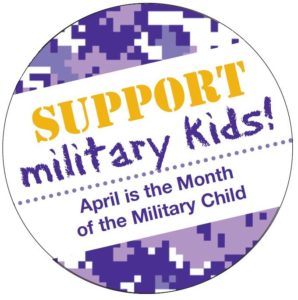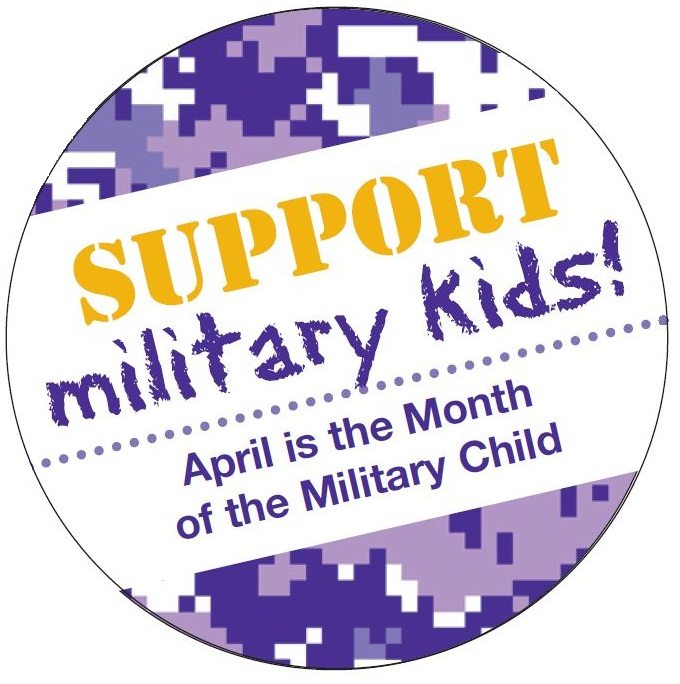 April is designated as the “Month of the Military Child,” in honor of the children whose parent(s) serve in the United States Military. Helping our nation’s wounded veterans right alongside the military caregivers are the children. They navigate the challenges of growing up intertwined with the sometimes harsh realities of having a loved one who was injured or medically ill during service. Everyone at the Elizabeth Dole Foundation is incredibly proud and in awe of these military caregiver children.
April is designated as the “Month of the Military Child,” in honor of the children whose parent(s) serve in the United States Military. Helping our nation’s wounded veterans right alongside the military caregivers are the children. They navigate the challenges of growing up intertwined with the sometimes harsh realities of having a loved one who was injured or medically ill during service. Everyone at the Elizabeth Dole Foundation is incredibly proud and in awe of these military caregiver children.
The totality of the service provided by child caregivers and the toll that the role takes on them still requires more research, but we know that child caregivers are out there. According to the RAND Hidden Heroes Study, 39% of post 9/11 military caregivers and 23% of pre 9/11 military caregivers reported having a child under the age of 18 who lived with them. Of these children, 5.8% of post 9/11 military and 36.5% of pre 9/11 military caregivers were children who actively assisted in caring for their service member/veteran parent.
Below, some of the members of the Foundation’s #HiddenHeroes Caregiver Community share how their children stepped up to help out, and as one military caregiver J. Davidson-Mayer said, “[I] think it would be easier to say how she hasn’t helped, shorter list.”
Piper’s husband was in a wheelchair all day, “…they would help get him out of bed, set him up on the couch, elevate his feet, make coffee, also sometimes give him his blood thinner shot. Then at night, get the bed ready, wheel him close enough to the bed and swing his legs over for him.”
Kinndamore’s children like many, have grown up learning how to manage their father’s health, “My children are more observant, that they have learned that nonverbal communication is an important, if not more than verbalizing for my husband and for other people who are struggling with health issues or PTSD… We started the rehabilitation process in 2007 – they were 12, 10 and 8. Now at 20, 18 and 16 they are natural right hands when needed. They each have their own challenges, and I truly believe that being part of their dad’s journey has helped them deal with their own obstacles.”
2015 Caregiver Fellow Maria Manzanares Davis’ children stepped in when during her husband’s battle with Non-Hodgkin’s Lymphoma. “The first time my husband was sick my kids were very young, but my daughter was almost 10. She “babysat” her dad and brothers when I had to work and dad was recovering from chemo… During the second bout of cancer my daughter fixed her schedule so that she could spend every chemo with my husband. At the hospital all day keeping us company. She and our middle son both lived out of the house at the time and would come take care of their dad if I had to go do errands or school issues. Our youngest lived at home with us and did the bulk of daddy’s work… They were wonderful.”
A common theme running though each military caregiver’s story of how their children helped out was the resilience and compassion that their children have. As Maria’s oldest daughter Marissa, who is now an adult and married herself, explained “It’s made me a better person. I understood priorities when I was a kid, but when Dad got sick that really cemented what was truly important. We’ve had terrible moments within great times.”












Follow Us